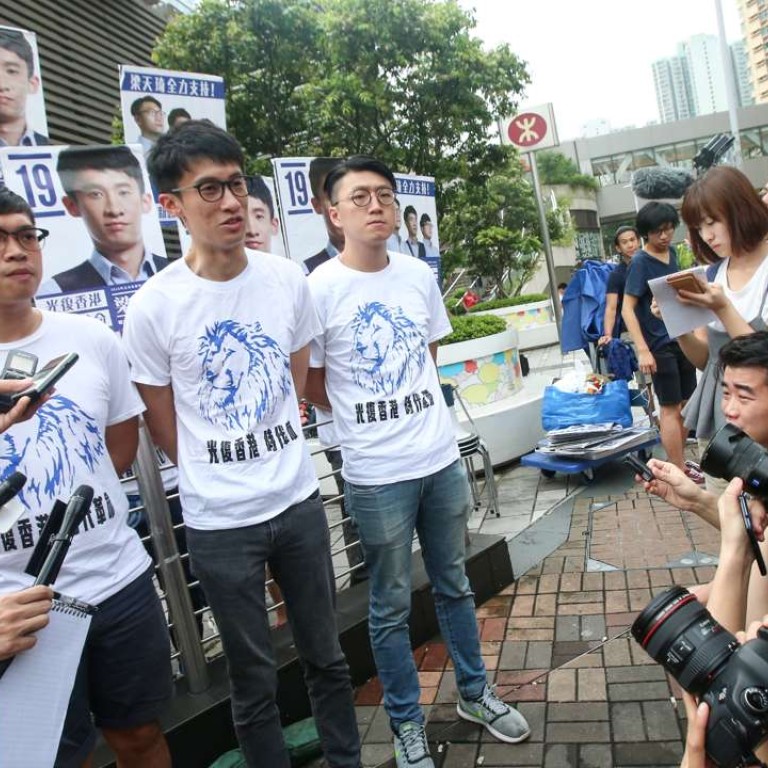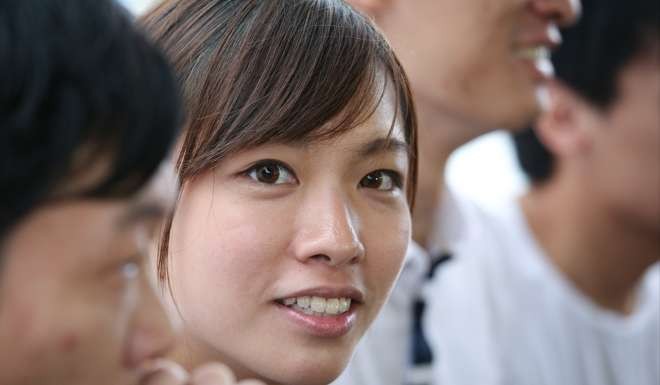
Why Hong Kong’s new leaders leave me conflicted
Three months ago, on the anniversary of the 1989 Tiananmen Square crackdown, I climbed some 500 metres to the top of Hong Kong’s Lion Rock. Made famous by a song from the 1970s, it embodies what locals call the “Lion Rock spirit” – a tendency for Hongkongers to persevere through hardship for a brighter future. It had seemed fitting, to scale the summit on a date that marked such sacrifice for political change.
I remember that moment clearly because I remember looking down at the city and thinking how insignificant it seemed. How unstable. Above all, I remember being struck by a sense of helplessness and defeat surrounding its future. A slap in the face of this so-called spirit.
Since the failure of the 2014 Occupy protests to bring about democratic changes at the legislative level, Hong Kong has become a city of extremes. On one end, there is pervasive fatigue. Turnout for the annual democracy protests, among others, dropped. On the other, radicalism: rising qualms over police brutality and protesters advocating violence, as well as calls for independence from mainland China.
New Legco street fighters will give the Hong Kong government a hard time
Hong Kong has also suffered intrusions on its civil rights such as the disappearance of those who sell politically sensitive books and the censorship of issues like independence. Such events have created rifts not only in our legislative system, but also the fabric of our community, tearing generations apart. In short, we’ve been through a lot. Which is what made this week so surprising.
On Sunday, a record 2.2 million Hongkongers or 58 per cent of the electorate came out to vote in the legislative council election, the first since Occupy.
The turnout was unprecedented. But even more so was the election of young pro-democracy candidates who were either born out of Occupy as fringe activists or previously perceived as too radical to be legitimate. Together, we elected a new generation of pro-democracy candidates – including some who advocate independence – and pushed out several veteran pan-democrats, some of whom have been criticised for being too moderate when dealing with Beijing.
These results have not only left me shocked, but also polarised. It’s been almost a week since the elections, and I’m left torn between conflicting emotions.

On one end, there is optimism. Diversity is a cornerstone of democracy, and I welcome it. Hong Kong has been trapped in a state of inertia too long, and we need new blood in the system – people who see things differently and can, hopefully, devise innovative solutions. The emergence of young lawmakers also highlights another aspect of the city’s oft-criticised youth: that they can stand on their own and seize power into their own hands. Despite the odds, they’ve gained a seat at the table and made the leap to legitimacy. We’ve shown that we are not too tired to care.
Leung Chun-ying plays down political divide in Hong Kong as he welcomes new Legco faces
On the other, scepticism. How will these new candidates utilise their legislative powers? Will they successfully implement new policies, or simply get lost in the political landscape?
Are they capable of making the necessary compromises to create change, or will Legco see even more filibustering? It’s all very well to stand up for Hong Kong’s interests, but lawmakers should also be responsible for bringing practical solutions to the table – and working on behalf of diverse constituents – when it comes to negotiations with fellow lawmakers as well as Beijing officials.

Also, will they be able to realise some of their more ambitious proposals? Young candidate Yau Wai-ching’s platform included a controversial plan to exploit natural gas resources that would lie in Hong Kong’s maritime exclusive economic zone, should the city gain independence. Yet in an unpromising sign, when pressed at a forum on how she would deliver on the proposal, she failed to give a clear answer. Such questions will be key moving forward.
With many young additions to Hong Kong’s Legco, analysts warn ‘old faces’ may run into trouble
Untested, they will also have to prove they can fill the shoes of predecessors with decades of experience navigating social issues. In addition to advocating greater political autonomy, we need lawmakers who can mend our broken welfare system and tackle issues like pensions, the environment, poverty and human rights. They’ve proven that they can think big, but it’s often the smaller issues that prove harder to grasp.
I can’t begin to speculate how these results will shape our city’s trajectory, let alone characterise them as positive or negative. Nor do I think they can, or should, be divided along such simple lines. All I know is that we’ve chosen change over inertia. The spirit has prevailed, for now. We’ll just have to see where it takes us.
Jessie Lau is a reporter on the City desk

